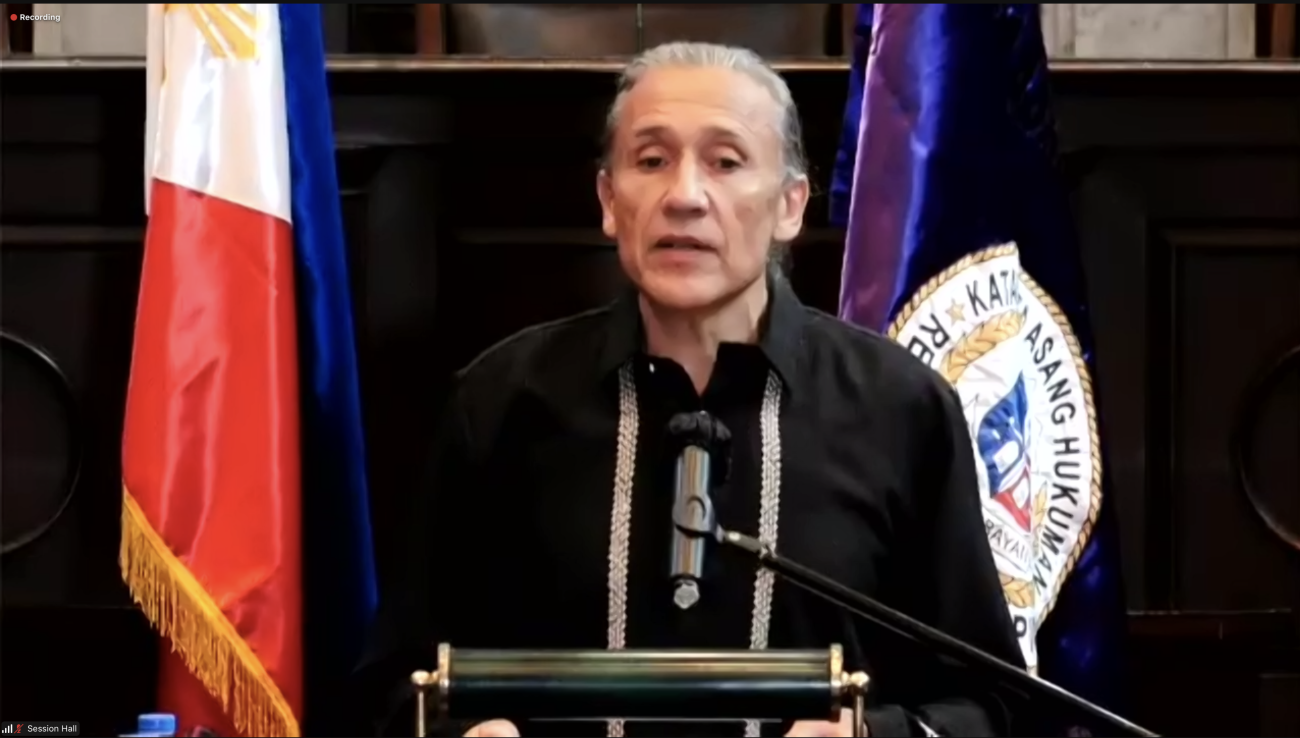Following is the text of UN Philippines Resident Coordinator Gustavo Gonzalez's remarks [as prepared] at the Media Launch of the Rule on Facilitated Naturalization of Refugees and Stateless Persons on 25 March 2022
Chief Justice Gesmundo, Associate Justices of the Supreme Court, Chancellor Carandang and Vice Chancellor del Castillo, our esteemed Presiding Justices and Judges, Chief State Counsel Ortha, Undersecretary Sulit, Executive Directors Fugoso-Alcain, Rojas, and Santiago, President Pimentel-Gana, Head of National Office Valdeavilla-Gallardo, and to all our distinguished guests attending physically and virtually, a pleasant morning.
Thank you very much for the opportunity to witness the launch of the Rule on Facilitated Naturalization of Refugees and Stateless Persons (Rule). It is an honor to be a part of this milestone which places the Philippines, yet again, at the forefront as this is the first Judiciary-led framework that expedites the naturalization procedure. For this, I offer my sincere and warm congratulations.
This would not come into fruition without the principled leadership of Chief Justice Gesmundo, Associate Justice Hernando and former Chief Justice Peralta. I recognize the members of the Special Committee on Facilitated Naturalization for Refugees and Stateless Individuals who have worked diligently towards the finalization and approval of the Rule.
Indeed, the Rule laudably addresses the challenges faced by refugees and stateless persons in applying for Philippine citizenship. It takes into consideration their specific and unique circumstances. By allowing unaccompanied children to apply for naturalization, it fulfills the State's obligations under the UN Convention on the Rights of the Child. These persons of concern no longer need to wait for years before they can become Filipinos through its expedited procedure. Naturalization is now more affordable by reducing costs and introducing the electronic publication of the petition. It also contains favorable provisions with regard to qualifications, disqualifications, and documentary requirements.
The Rule serves as a manifestation of the Philippines' unwavering commitment to the advancement of human rights, especially the right to a nationality. This right, enshrined in international and national frameworks, is integral in accessing other rights. This is even more important within the context of the pandemic as it does not discriminate on one's status or nationality.
By providing means to make the acquisition of Philippine citizenship more accessible to refugees and stateless persons, the Rule contributes to the collective vision of the 2030 Agenda for Sustainable Development (2030 Agenda) to leave no one behind. It is particularly geared towards the achievement of Sustainable Development Goal (SDG) 16 on ensuring inclusive societies for sustainable development and providing access to justice for all, along with its Target 16.9 on providing legal identity for all which includes citizenship.
The UN in the Philippines is one with the Philippine Government, including the Judiciary, in realizing the 2030 Agenda and the SDGs through its UN Socioeconomic and Peacebuilding Framework for COVID-19 Recovery in the Philippines 2020 – 2023 (SEPF). The SEPF aims to support the Philippine Government and complement its updated Philippine Development Plan 2017-2022.
Under its SEPF, the UN is committed to "uphold the rights of the people it serves and protects" by "address[ing] inequality" among vulnerable and marginalized populations, including refugees and stateless persons. The SEPF’s goal on social cohesion aligns with efforts to provide opportunities for refugees and stateless persons to locally integrate and contribute to their communities.
Naturalization is one step closer towards the realization of that goal.
Rest assured of my support to the Philippine Government, including the Judiciary, UNHCR and other stakeholders in ensuring a favorable and protective environment for persons of concern.
Thank you.


